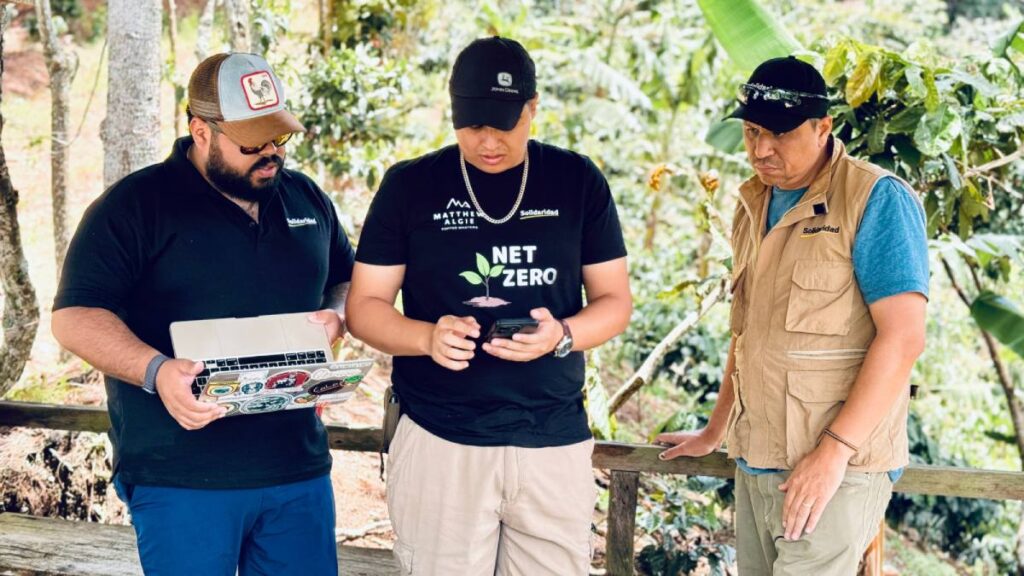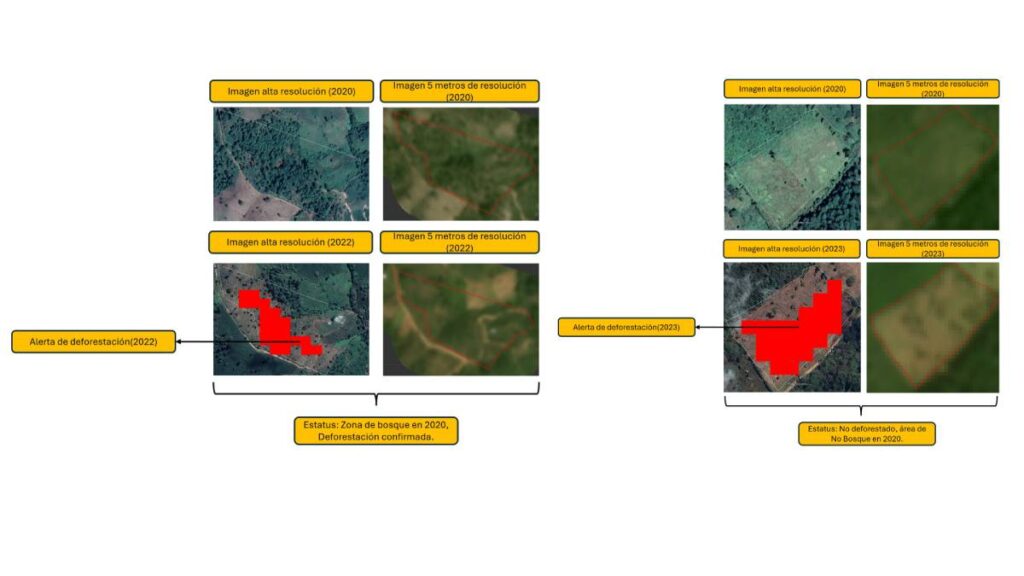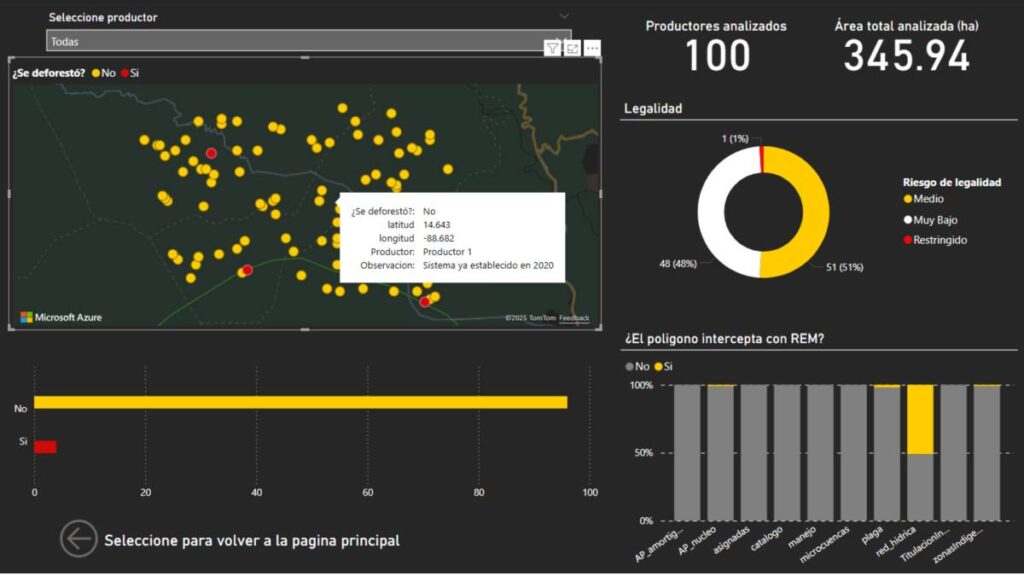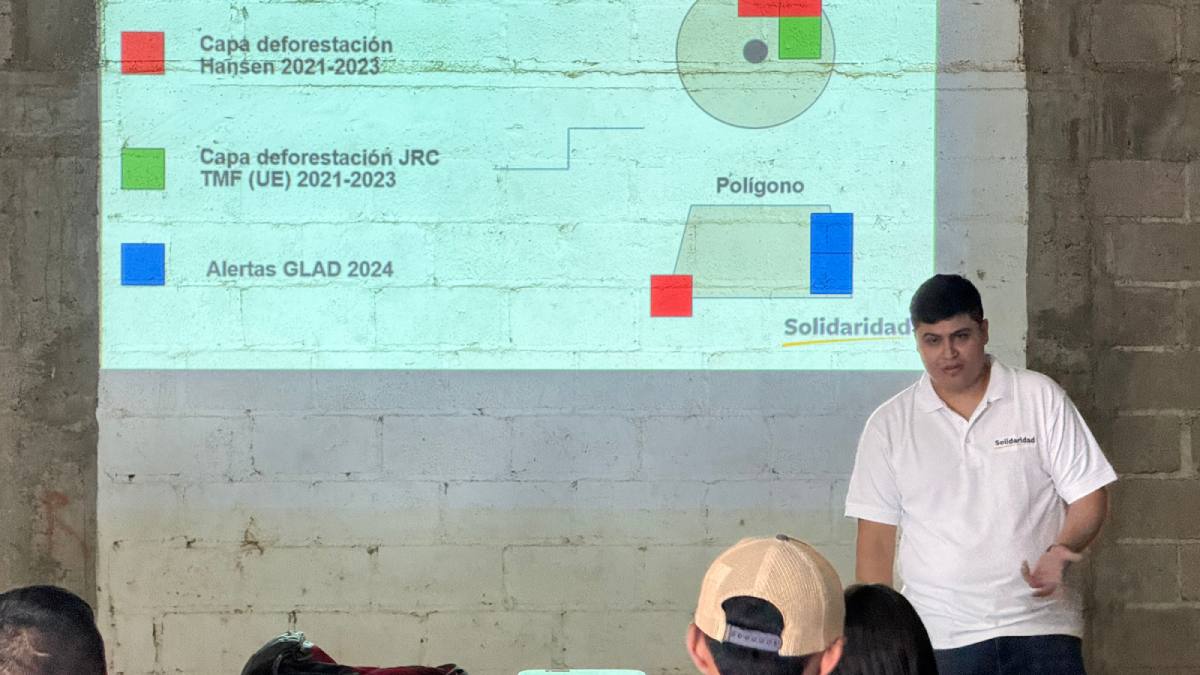The EUDR requires that exporters (and suppliers) demonstrate traceability, compliance with due diligence requirements, and proof of origin from deforestation-free areas. Solidaridad’s protocol addresses land-use legality and deforestation risks, and leverages proven technology to deliver robust results.

What sets our EUDR Pre-Check Protocol apart?
Solidaridad’s approach is based on a protocol already implemented in Honduras that provides technical validation of land-use legality and assesses deforestation risk. It is an operational and scalable solution with the following key differentiators:
- High-fidelity multitemporal analysis: Solidaridad’s team in Honduras has achieved 92% accuracy in land-cover analysis, significantly surpassing the 80% accuracy reported by systems like Global Forest Watch (GFW) in Honduran agroforestry environments. This is accomplished through expert processing and interpretation of medium-resolution (10m and 30m) multispectral satellite imagery, conducted on Solidaridad’s proprietary web platforms.
- Detailed, parcel-level verification: The team conducts plot-by-plot verification, cross-referencing geospatial data with national legislation on land use and forest conservation.
- Evidence-based due diligence support: While the protocol does not issue certifications, Solidaridad provides a comprehensive technical dossier containing robust, traceable evidence. This dossier integrates geospatial data, historical analysis and regulatory references. It serves as a strong evidentiary resource for risk mitigation in commercial transactions and compliance with EUDR.

Strategic investment with tangible results
In partnership with RGC Coffee, we have demonstrated the effectiveness of our solution by generating:
- A georeferenced database, per producer and cultivated area.
- Interactive dashboards with clear results and risk prioritization. In the example below, 2.63% of analyzed producers show evidence of deforestation, warranting field verification.
- Technical recommendations for field verification and gap closure. In the example below, 3.65% of producers show evidence of degradation, recommending agroforestry restoration processes.

This solution is tailored for organizations seeking to demonstrate EUDR compliance through robust and transparent documentation. We facilitate compliance by providing the necessary tools and technical support for stakeholders, so that they can meet EUDR requirements effectively and verifiably.
“With Solidaridad, we implemented a reliable EUDR management system in record time. Their technology and regional expertise were key to mapping our supply chain and strengthening our due diligence process.”
Angela Pelaez, Director of Global Sustainability and Corporate Compliance, RGC Coffee
Next steps: scaling impact
In addition to supporting private actors like RGC, Solidaridad in Honduras is collaborating with IHCAFE (Honduran Coffee Institute) on the National Coffee Census, to identify risks in protected areas, indigenous territories and deforested zones. In the first phase, the team will analyze at least 10,000 registered IHCAFE producers, with plans to scale to 30,000 in the coming months. Eventually, this model will be replicated in other Central American countries, maintaining the same technical rigor while adapting to local contexts.
“The EUDR is not just a requirement but an opportunity to enhance the value of Honduran coffee. Our protocol is the key to markets seeking sustainability.”
Edward Moncada, Geospatial Intelligence and Data Management Coordinator, Solidaridad in Honduras
Contact María Durán from our Central America team to learn how this strategic investment can secure your organization’s EUDR compliance and access to the European market.

